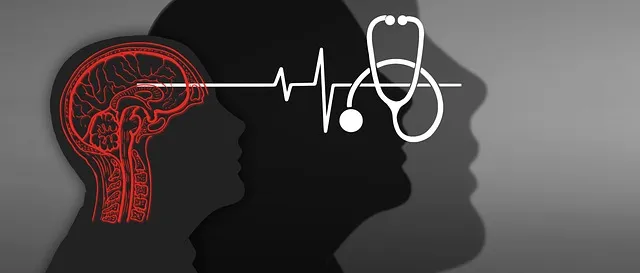Crisis intervention strategies offered by Kaiser in Littleton are highly effective in managing sudden emotional or mental health crises. These strategies, provided by trained professionals, stabilize individuals, reduce impulsive behaviors, and promote stress management and anxiety relief. Known for their comprehensive approach, the therapists at Kaiser Littleton use evidence-based practices and cultural sensitivity to build inner strength and healthy coping mechanisms. Post-crisis support includes individual therapy, group support, and education on mood management techniques, ensuring long-term emotional recovery. As a top mental health care facility, Littleton's Kaiser services are renowned for fostering holistic healing and strengthening therapeutic relationships.
In times of crisis, effective intervention can make all the difference. This comprehensive guide explores essential strategies for navigating mental health crises, drawing from the expertise of professionals like those at Littleton’s Kaiser. Understanding crisis intervention involves recognizing warning signs, assessing risks, and implementing stabilization techniques. From communication skills to post-crisis care, this article equips readers with knowledge to support individuals in need, fostering long-term wellbeing.
- Understanding Crisis Intervention: A Brief Overview
- The Role of Mental Health Professionals in Crisis Situations
- Strategies for Assessing and Stabilizing Individuals in Crisis
- Effective Communication Techniques during a Mental Health Crisis
- Post-Crisis Support and Follow-Up Care: Promoting Long-Term Wellbeing
Understanding Crisis Intervention: A Brief Overview

Crisis intervention strategies are essential tools for addressing sudden and intense emotional or mental health crises. Understanding crisis intervention involves recognizing that it’s a structured yet flexible approach to help individuals navigate through distressing situations, offering immediate support and guidance towards recovery. This process is crucial, especially in settings like Littleton, where Kaiser offers comprehensive mental health services known for their effectiveness.
The primary goal is to stabilize the individual, provide emotional support, and facilitate the initiation of emotional healing processes. Effective crisis intervention strategies can help manage intense emotions, reduce impulsive behaviors, and promote better stress management and anxiety relief. By utilizing these techniques, professionals in mental health settings, including those at Kaiser in Littleton, can ensure that individuals receive timely assistance, ultimately fostering a healthier and more stable state of being.
The Role of Mental Health Professionals in Crisis Situations

In crisis situations, mental health professionals play a pivotal role in providing immediate and effective support. When faced with acute distress or traumatic events, individuals often require specialized care to navigate through their emotions and regain stability. These professionals are trained to offer crisis intervention strategies tailored to each unique situation. Whether it’s a personal or communal crisis, their expertise lies in de-escalating tensions, offering emotional reassurance, and guiding people towards healthier coping mechanisms.
Litttleton is Kaiser good for mental health services, renowned for its comprehensive approach to care. Their team of seasoned therapists employs evidence-based practices and conflict resolution techniques to assist individuals in managing stress and cultivating inner strength development. By fostering a safe and non-judgmental environment, these professionals empower people to navigate challenging circumstances, promoting long-term resilience and well-being.
Strategies for Assessing and Stabilizing Individuals in Crisis

When individuals find themselves in a crisis, assessing their needs and providing immediate stabilization is crucial for their well-being. One effective approach is to encourage open communication where the individual feels safe to express their emotions and concerns. At Littleton, Kaiser’s renowned mental health services offer a supportive environment for this process, allowing professionals to gain insights into the triggers and underlying factors contributing to the crisis. By actively listening and asking relevant questions, practitioners can identify specific areas of distress, whether it’s intense anxiety, overwhelming stress, or emotional turmoil.
In addition to verbal communication, non-verbal cues and behaviors should be observed as they can provide valuable information about an individual’s state of mind. Social Skills Training and Self-Awareness Exercises, offered by Kaiser Littleton, are instrumental in helping individuals better recognize and articulate their feelings. These strategies enable people to develop coping mechanisms for managing crises, fostering a sense of control and resilience. Through structured interventions, individuals can learn effective communication techniques, enhance their emotional intelligence, and find healthy ways to navigate challenging situations.
Effective Communication Techniques during a Mental Health Crisis

During a mental health crisis, effective communication is key to providing adequate support and guidance. At Littleton, Kaiser’s approach to mental healthcare emphasizes active listening and clear, empathetic dialogue. Professionals are trained to create a safe, non-judgmental space where individuals feel comfortable expressing their thoughts and emotions openly. This involves reflecting on what the person is saying, validating their feelings, and asking clarifying questions to gain a deeper understanding of their crisis.
Cultural sensitivity in mental healthcare practice is another vital aspect. Recognizing that each individual comes from a unique background, Littleton Kaiser ensures its staff are equipped to adapt communication styles and coping skills development to suit diverse cultural needs. This might include incorporating traditional healing practices or specific language when appropriate, thereby fostering trust and strengthening the therapeutic relationship. Social skills training is also integrated into crisis intervention strategies to help individuals re-establish healthy interactions with their support systems after the acute phase of the crisis has passed.
Post-Crisis Support and Follow-Up Care: Promoting Long-Term Wellbeing

Post-crisis support and follow-up care are vital components of crisis intervention strategies, aiming to promote long-term mental wellbeing. In the aftermath of a traumatic event, individuals often require sustained guidance and resources to navigate their emotional recovery. Littleton, as an esteemed facility within Kaiser for mental health services, offers specialized programs tailored to meet these needs. Their comprehensive approach includes individual therapy sessions, group support networks, and education on mood management techniques, ensuring that patients gain practical tools to cope with future challenges.
By prioritizing burnout prevention strategies for healthcare providers, Littleton recognizes the importance of self-care in supporting others. They encourage emotional intelligence as a key factor in fostering empathy and effective communication, which are essential for building trust and enhancing patient outcomes. This holistic perspective ensures that individuals not only recover from acute crises but also develop resilience to thrive in the long term.
Litttleton’s Kaiser network stands as a beacon of hope, providing excellent mental health services through crisis intervention strategies. By understanding the critical role of professionals, employing effective assessment and communication techniques, and ensuring post-crisis support, we can create a more resilient and supportive environment for those facing mental health challenges. Following the guidance outlined in this article, communities can better navigate crises and promote long-term wellbeing, demonstrating the transformative power of timely and compassionate care, much like Kaiser’s commitment to its patients.






